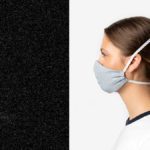As strange it may sound to your ears but this may prove out to be one of the most bizarre findings regarding the COVID-19. Multiple studies hint that smokers may be at lower risk of becoming seriously ill with COVID-19
A French study, published this month, based its research on public health data that seemed to show that people who smoke are 80% less likely to catch COVID-19 than non-smokers of the same age and sex.
The scientists hypothesized in their study that nicotine, which is contained in cigarettes, could affect whether or not the coronavirus molecules are able to attach themselves to receptors in the body.
“You have the virus which arrives on the receptor, and the nicotine blocks that, and they separate,” said Jean-Pierre Changeux, emeritus professor of neuroscience at France’s Pasteur Institute, describing the hypothetical process to Reuters.
What does the study say about smoking and COVID-19?

The study acknowledges that nicotine is a drug of abuse and could have severe pathological consequences. But it states that in controlled settings, nicotine could provide an efficient treatment.
The French study is not the only study that seems to give smokers an advantage against the deadly virus. There are multiple studies now that seem to suggest similar findings.
University College London academics looked at 28 papers and found the proportions of smokers among hospital patients were ‘lower than expected’.
22 of these studies were conducted in China, 3 in the US, 1 in South Korea, 1 in France, and 1 was an international study using mostly UK data.
Only three of them split smoking status into three parts – current, former, and never smokers. The other 25 only reported current and former smoking status, but there were questions around how many of the rest had never smoked, and how many had missing data.
Notwithstanding these ambiguities, compared with national prevalence estimates, recorded current and former smoking rates in the included studies were generally lower than expected.
Data from the US suggests that smokers appear to be less likely to test positive for SARS-CoV-2 compared with never smokers.
In China, a study noted 3.8 percent of patients were smokers – despite more than half of the population being regular smokers.
One public health professor said there was ‘something weird going on with smoking and coronavirus’ and experts are struggling to explain the connection.
One of the studies showed that in the UK the proportion of smokers among COVID-19 patients was just five percent, a third of the national rate of 14.4 percent.
Rather than this reflecting likelihood of catching the virus in the first place, it is more likely to point to someone’s risk of becoming so ill they have to go to the hospital.
Most studies are based on the comparison of the number of patients tested for positive of the virus, who are also smokers vs non-smokers This data is then extrapolated to the whole population, and there seems to be a statistically significant deviation.
However, these are preliminary studies and non-conclusive at this point in time.
You may also like: China’s Recovered COVID-19 Patients Still Test Positive After 70 Days of Infection
What is the possible explanation of the mechanism that leads smoking to help fight the virus?

Commenting on the matter, Linda Bauld, a Professor of Public Health, University of Edinburgh, said: “There’s something weird going on with smoking and coronavirus.”
She told Good Morning Britain, “We know for decades that smoking is linked to a greater risk of acquiring respiratory conditions and also people who smoke have poorer outcomes.
And we’ve still got around seven million smokers in the UK, [the] leading preventable cause of death. However, my colleagues at UCL… what they’ve found is there are surprisingly few smokers in those studies who’ve developed coronavirus.
In one French study, four times as many non-smokers got the virus and developed COVID-19 compared to smokers. There is a potential biological explanation for this.”
Professor Bauld said the way the virus enters the body may be blocked by the effects of nicotine — the main addictive compound found in tobacco.
The coronavirus invades cells inside the body via structures called ACE-2 receptors, which coat the surface of some cells, including in the airways and lungs.
The number of ACE-2 receptors someone has is estimated to vary depending on genetics, and some evidence hints that they are higher in smokers. This could, in theory, put them at a higher risk of contracting the coronavirus.
However, the virus is known to cause lung damage by depleting the numbers of ACE-2 receptors, so the fact that smoking increases them could reverse the effect and prevent harm to the lungs.
On the other hand, other studies show that nicotine reduces the action of the ACE-2 receptor, suggesting smokers are less likely to catch the virus in the first place.
Professor Bauld further said, “It’s plausible that smokers are less likely to develop the condition potentially because of nicotine. Importantly in that UCL review where smokers did develop COVID-19, their outcomes are far worse.”
An infectious disease expert at University College London, Professor Francois Balloux, has also previously said there is ‘bizarrely strong’ evidence smoking may be protective.
For now, there are some contradicting studies showing the outcome for smokers to be worse than non- smokers.
You may also like: Shocking Development: Children Fall Ill With a Syndrome Similar to Severe COVID-19
France has moved to stop the stockpiling of nicotine products
France has quickly moved to stop the stockpiling of nicotine products after the country’s health minister showed curiosity in research suggesting that the addictive stimulant could help lessen Covid 19 infection.
The French government on Friday issued a decree suspending online sales of nicotine patches and other products designed to help smokers quit, and told pharmacies to limit physical sales.
Chemists were told to only dispense the products to customers in amounts needed for one month of treatment.
Advice against smoking based on the report
While further studies are underway, it is highly inadvisable to consider nicotine as some part of prevention or cure. The tobacco contains nicotine and other compounds that are still extremely injurious to health.
Most people also argue that the French government’s move to decrease the sale of nicotine products was to prevent a frenzy buying.
There have been many incidents across the world where people have consumed harmful products like methanol and disinfectants based on sporadic reports which may be presumptive, incomplete, or outright false.



